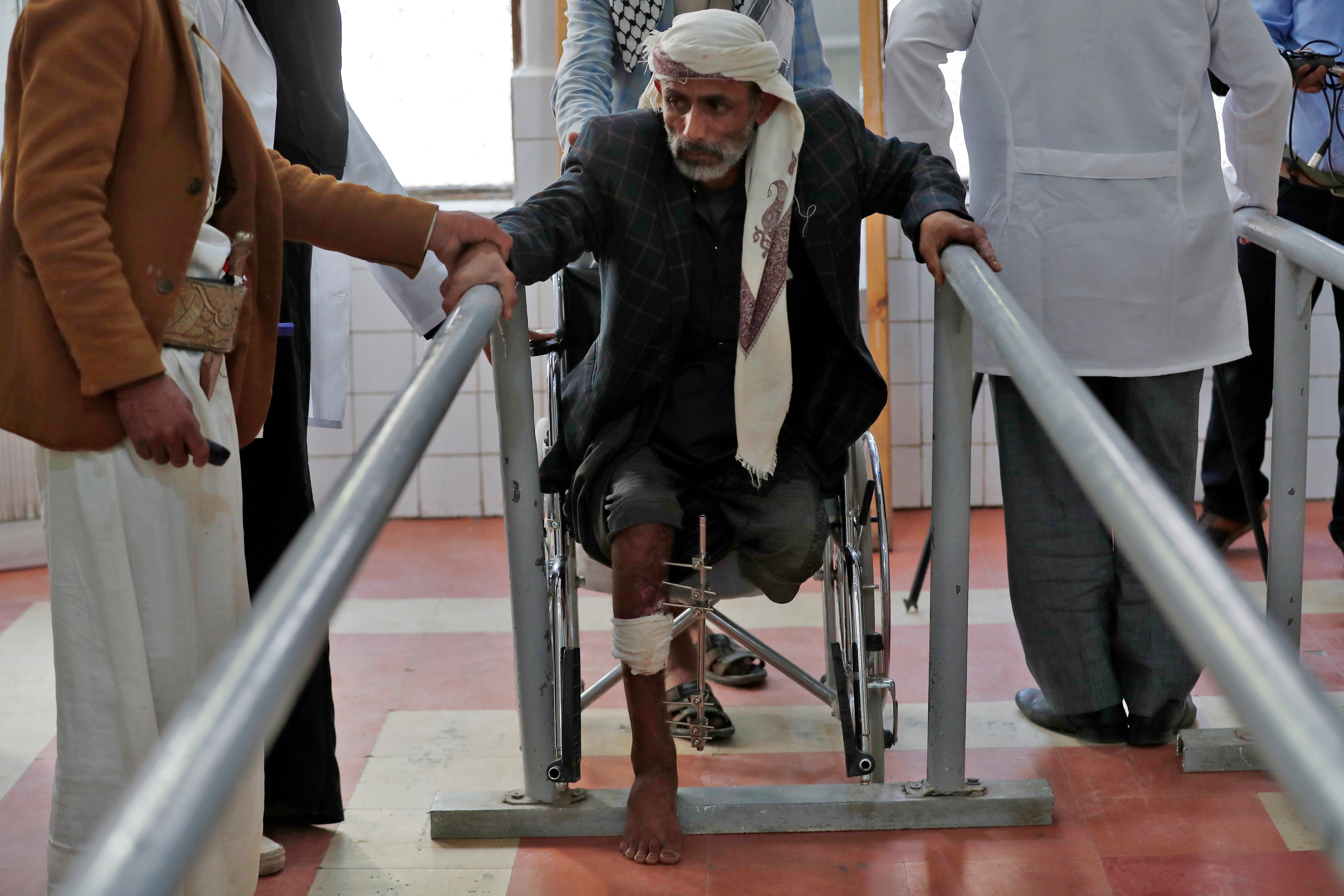Yemen war: Four civilians killed or wounded every day since peace deal
UK has given £1bn in aid to Yemen but has licensed £6.5bn worth of arms to countries bombing it

Your support helps us to tell the story
From reproductive rights to climate change to Big Tech, The Independent is on the ground when the story is developing. Whether it's investigating the financials of Elon Musk's pro-Trump PAC or producing our latest documentary, 'The A Word', which shines a light on the American women fighting for reproductive rights, we know how important it is to parse out the facts from the messaging.
At such a critical moment in US history, we need reporters on the ground. Your donation allows us to keep sending journalists to speak to both sides of the story.
The Independent is trusted by Americans across the entire political spectrum. And unlike many other quality news outlets, we choose not to lock Americans out of our reporting and analysis with paywalls. We believe quality journalism should be available to everyone, paid for by those who can afford it.
Your support makes all the difference.Four civilians have been killed or injured every day in two of Yemen’s worst-hit areas since a peace deal was agreed two years ago, Oxfam has said, warning that violence is growing across the country.
Yemen’s internationally recognised government and the Iran-backed Houthi rebel group signed the Stockholm Agreement on 13 December 2018 to halt hostilities around the Red Sea port city of Hodeidah and to address the mounting humanitarian crisis in the central province of Taiz.
It marked the first time in years that the warring sides had met and was supposed to lay the groundwork for a comprehensive long-term peace deal to end the devastating conflict, now in its fifth year.
Since then, however, 592 civilians have been killed and 2,136 wounded in the two areas, according to data compiled by the Civilian Impact Monitoring Project and analysed by Oxfam, meaning that, on average, approximately four civilians a day have been killed or injured.
The global aid organisation said that rather than these agreements bringing an end to violence in Yemen, attacks on civilians were on the rise. It urged the international community to intervene and halt the sale of weapons for use in the war. According to the Campaign Against Arms Trade, the UK has given £1bn in aid to Yemen but has licensed £6.5bn worth of arms to countries bombing it.
Mohamed, a 50-year-old widower, fled Taiz City in early November when his daughter’s husband was killed. The father of four is now living in a school, ten people to a tent, and fears he will be evicted.
“They want us to leave because it’s overcrowded. [But] there’s nowhere else for us to go,” he told Oxfam.
“Right now, we’re in this place with no food, no toilets, no healthcare, no blankets, and hardly any water,” he said.
Hannah Cooper, Oxfam’s Humanitarian Policy and Advocacy Adviser in Yemen said: “Every day, civilians are dying or being injured in this senseless conflict, while also facing hunger and disease in what is the world’s biggest humanitarian crisis.
“Members of the international community, including the UK, need to stop fuelling the conflict by selling weapons for use in the war.
“Instead they should do all they can to get the warring parties to agree to a nationwide ceasefire that would build confidence and see all parties return to negotiations committed to achieving a lasting peace.”
Yemen has been ripped apart by a devastating civil war since the Iran-backed Houthi rebels seized control of the country in late 2014, ousting the recognised president.
Saudi Arabia and its gulf allies launched a bombing campaign in March 2015 to reinstate the government, hoping for a speedy resolution to the crisis.
Five years on, the conflict still rages and more recently has sparked a war within a war as southern separatists, nominally allied to the government, turned on their former allies to fight for an independent south.
Over the last few months, fighting has escalated in Hodeidah and Taiz, with civilians saying they have been forced to flee to squalid displacement camps despite the winter conditions and the pandemic.
Jamila, 50, left Taiz City in search of safety and, like Mohamed, is also currently living in a classroom. She is struggling with breast cancer but has no access to healthcare.
“The local community wants us to leave – they want their school back. We can understand that, but we have no other place to go,” she said.
“My husband and I have to beg for help. We’re already having trouble affording the medicine that I need. I’ve sold my jewellery to buy that. We often go for days eating only bread and water so that we can afford our medicines.”


Join our commenting forum
Join thought-provoking conversations, follow other Independent readers and see their replies
Comments